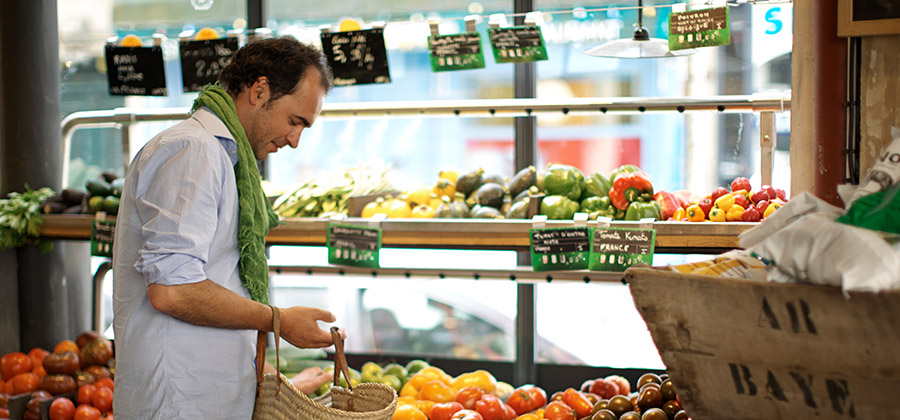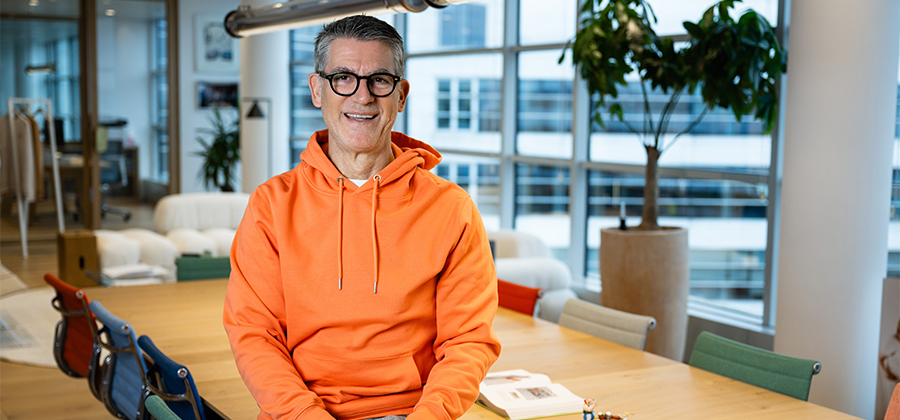In the UK, Tesco has got its hands on a chain of small independent retailers. The small shop is being reincarnated due to more spread-out consumer behaviour.

The convenience store market has attracted greater attention since the announcement of the acquisition by Tesco of the Booker chain in the United Kingdom for EUR 4.4 billion. This transaction should enable Tesco, which is beset by strong competition from other supermarkets, to diversify and become a big player in distribution to both private individuals and businesses.
Announced at the end of January, this acquisition should take effect in late 2017 or early 2018. The reasons that lead Tesco to Booker are clear: the group already represents 30% of the British grocery market and this share could increase by 2 or 3% once the acquisition has been validated by the shareholders.
This represents a shock wave in the UK. 80% of the 41,000 convenience stores in the UK were previously fully independent, or part of purchasing groups such as Costcutter and Nisa. These groups continue to play a big role on the local market, holding a substantial share of the food market: EUR 44 billion out of total sales of EUR 210 billion.
The Saturday food shop is a thing of the past
According to IGD, the market share of the small grocery should see growth of 11.7% in the next five years. This growth may be surprising, but it can be explained by a change in British habits. People are moving away from doing the weekly shopping in big supermarkets and instead go shopping more often when they need to, behaviour known as 'top-up shopping.'
"Our revenues have always been satisfactory, but there is now a lot more competition on our market and our margins have really reduced over the last few years," explains Vijay Patel to the Guardian, an independent retailer since the 80s.
He confirms the trend for the small shop:
"I used to know 98% of my customers by name. Now I would say I know about 50%. I see new faces all the time, but customers are also less loyal."
Joining with Tesco should give Booker breathing room. Around a decade after Aldi and Lidl set up shop on the English market, competition has grown fierce for small retailers.
09.12.2024
Managing business uncertainty with BNP Paribas Fortis
Every entrepreneur will tell you that financial markets are unpredictable, entailing inherent risks. We provide tailored solutions to protect your business as you navigate these volatile markets.
Whether you’re a small or large business, operating domestically or internationally, one thing is certain: if you enter a market and do your utmost to grow your business, sooner or later there inevitably will come a time when you expose yourself to risks. Frédéric Raxhon, Head of FI Midcap Sales, BNP Paribas Fortis Transaction Banking, is our go-to expert. Here, he explains how BNP Paribas Fortis helps customers manage this uncertainty.
Raxhon knows how market volatility can impact the daily operations of small, medium and large enterprises. Thanks to his experience of working as a banker in corporate finance, shares and derivatives, and advising holding and listed companies, he understands how the market works like no other.
Raxhon: "We are keenly aware that price uncertainty, in the form of volatility on the financial markets, can have a serious impact on the operations and profitability of businesses. That’s why we constantly monitor the markets and their volatility: if prices fluctuate sharply, our customers run the risk of buying high and selling low. The past few years are a good example of what can happen, with a sudden rise in interest rates, an energy crisis with very volatile prices, and a sharp rise in inflation. We will continue to see volatility in these markets, due to geopolitical tensions and ongoing wars. However, elections can also cause volatility, as they often cause a change in economic policy. President-elect Donald Trump has already said that he will hike tariffs on goods coming from outside the U.S., which will have an impact on global growth and inflation. The transition to a more sustainable society because of the energy transition, however positive this may be, is also a source of uncertainty. Companies will be required to make significant investments, and it is not yet clear which technologies will prevail.
All of these factors show that companies need guidance in the form of a tailor-made solution to ensure that volatile markets minimise the impact on their operations so that they can focus on their core business."
Solution-oriented
The solution to this volatility comes from a partner who is a market leader when it comes to safeguarding national and international business.
Raxhon: "At BNP Paribas Fortis, this often means managing the risks of companies that have a number of straightforward wishes: they want to conduct business on a daily basis without unnecessary complications; buy at a stable price where possible; pay wages in a stable environment; sell to customers with a profitable, stable margin, and so on. If they experience market uncertainty in their business operations, we are there to advise them and suggest solutions in different scenarios. This can range from companies that want stability when buying or selling goods in another currency, to controlling fluctuating interest rates on current or future loans, or even creating a stable financial environment in which they can steadily pay their wages. We also hedge raw materials: companies that require large quantities of energy, metal, or wheat, for example – just a few of the commodities that are subject to price fluctuations – can rely on our expertise to turn their uncertainty into certainty. When companies are calculating their budgets for the coming years at the end of the year, assumptions about budgets and costs are a factor that future markets do not take into account. This, in turn, could lead to inconsistencies in business operations during the next financial year. We regularly suggest solutions for this, which inject trust into the entire process. We help entrepreneurs make their business more resilient to market fluctuations. Because at BNP Paribas Fortis, we are always focused on finding solutions, in any given scenario."
International intelligence
Belgian companies are increasingly expanding their horizons, which is why an international perspective is so crucial.
Raxhon: "Everything is intricately connected in the economic space. The energy crisis, for example, was not a national crisis. In Belgium, electricity prices were directly impacted by the drop in nuclear power production in France in 2022. The American elections have a direct impact on international business, with anxiety gripping investors and the markets. And I can give you many more examples.
Moreover, we expect this interdependence and volatility to continue for quite some time: there are a large number of economic and global trends that are feeding this uncertainty. And that is why it is so important that we keep up with developments in this uncertain global environment. At BNP Paribas Fortis, we rely on a global network of experts who are always on the lookout for the latest updates. Whatever happens and wherever it happens, there are always people from our bank on the ground who monitor the situation and provide us with real-time advice on how best to inform our customers. This network has proven its worth time and again, both for us and our customers."
02.05.2024
“Our focus is on people and trust”
Can a fashion company be successful even if it forgoes the excesses of fast fashion? Definitely, as Jean Chabert proves with Stanley/Stella, which produces custom-made clothes from organic cotton.

“We want to be a game changer,” says Jean Chabert, CEO of Stanley/Stella. "When I was born 62 years ago, 2 billion people were living on our planet. Today there are 8 billion. That’s the reality, so we need to stop depleting resources. Human activities always have consequences, but we must constantly strive to improve. That’s our commitment, and we enshrined it in a charter in 2022. We monitor our entire ecosystem and focus on people and trust."
Clothing as a means of communication
The B2B company from Brussels sells clothing that serves as a means of communication. Stanley/Stella customers have T-shirts, sweatshirts and hoodies printed or embroidered and they offer these personalised items to their own customers. "We're in a giveaway industry, and our prices are at least 50 per cent above the average. But we offer superior quality and respect for people," says Chabert.
Organic cotton: half the water
15 of the 220 Stanley/Stella employees are directly or indirectly involved in Environmental, Social, Governance (ESG) activities. For example, they check that agreements on working conditions and safety at the production sites are respected. The company buys its organic cotton, produced without Genetically Modified Organisms (GMOs) or pesticides from India, Tanzania and Turkey - it uses 70 per cent less water than conventional cotton. Stanley/Stella has also made long-term commitments throughout the production chain to minimise any negative impacts on people and the environment. For example, 90 per cent of containers arrive at the warehouse in Germany by inland waterway, the least polluting form of transport.
Considering all the impacts
“Of course, we have to remain realistic,” Chabert adds. "Companies that want to be viable must also remain profitable. By definition, we use resources to make textiles. So, we consider all the impacts. For example, we continue to operate our textile decoration business in Europe, even if it's more expensive. Wastewater containing inks and dyes is treated and reused. At the moment, we can't avoid electricity being generated by gas in Bangladesh. We check how willing a country is to make progress in this area. And in the meantime, we offset what we can't avoid."
Trust and humanity
“Trust is at the heart of any good relationship,” says Chabert. "I used to have a cash flow problem. I relied on my own equity and for years, had no loans. I was the only shareholder for a long time. Eventually, I opened my capital to 40 per cent and applied for loans from BNP Paribas Fortis. Today, we know each other well, and I don't have to explain my company's limitations; they know the industry. They co-finance the stock, offer an invoicing solution, support our development in the United States thanks to their international network, and much more."
Today, it’s full steam ahead for Stanley/Stella. In 2023, turnover more than doubled to EUR 170 million. The company also hopes to enter Japan and South Korea soon. For Chabert, one thing is clear: "Our most important wealth is not on the balance sheet. It’s our people."
Stanley/Stella is ready to change the world. Discover more entrepreneurial stories.
We monitor our entire ecosystem, focusing on people and trust.
Our prices are at least 50 per cent higher than the average. But we offer superior quality and respect for people.
30.04.2024
Measurable corporate social responsibility
The Brussels-based scale-up Optimy brings together corporate volunteering, donations, patronage and sponsorship activities all on one platform. On it, their impact on society is concretely measurable.
"Originally, I didn't think of myself as a social entrepreneur, even though I was involved in sponsorship. At the request of our customers, my partners and I have developed an entire provision of services that has become the most comprehensive platform on the market," says Kenneth Bérard, CEO of Optimy.
One of these customers was the BNP Paribas Fortis Foundation, which wanted to make a greater social difference and also give these actions more visibility. "It's a must for companies to contribute to society. This generates added value for the company and fuels a positive spiral. But that social impact has to be measurable. How many children have been helped? How many trees have been planted? What effect does this have on employee satisfaction, image and turnover? Our model offers all of this. This means that companies don't have to purchase new modules every time they want to add additional activities. I think that’s our great success factor. We are the market leader in Europe in our sector and the only company operating in both Europe and North America."
Personal support
"Many companies are full of good intentions. They want to have a positive impact on society, but they often lack a good method to do this efficiently," the entrepreneur notes. "They tend to see all their efforts in isolation. The Optimy platform offers a solution for this. It's easy to put together and it's service-oriented. We adapt to the processes of each business unit and company. It doesn't work the other way around," assures Bérard. "Our customers are not looking for technology; they're looking for guidance. We invest in personalisation, and it's paying off, as a customer satisfaction survey shows."
Structuring actions
The first piece of advice that Optimy always gives companies is: don't shred your efforts, they should form a whole. "We recommend that companies structure their actions using our tool. The corporate social responsibility policy must be in line with the company’s values, DNA and broader strategy. And of course, the actions must be transparent and well executed."
The right partner
From the beginning, the connection Optimy had with BNP Paribas Fortis was decisive for the company’s growth. "The fact that the bank follows us has increased our credibility with our partners, investors, customers and also internally. Now it's setting up a factoring service for us to further support our growth."
Optimy's growth was initially supported by cash flow, which is unusual for a technology company. Financing came into play beginning in 2019. That's when a Canadian fund specialising in software as a service (SaaS) companies and affiliated with the prestigious Massachusetts Institute of Technology (MIT) became a shareholder.
Multicultural enrichment
As with increasingly more companies, one of Optimy’s biggest challenges is recruiting new talent. “We've been able to convert that challenge into an asset,” concludes Bérard. "We attract talent from abroad. Sixty people from twenty nationalities work in our Brussels branch. This multiculturalism is a huge enrichment and has helped us break through internationally."
“The corporate social responsibility policy must be in line with your company’s values, DNA and broader strategy”.
10.09.2020
Export plans? Make sure you talk to our experts first
To prepare your international adventure properly, ask yourself the right questions and talk to people who have done it all before: partners, customers, fellow exporters and experts.

BNP Paribas Fortis listens to the questions asked by international entrepreneurs and offers reliable advice. "A lot of exporting companies ask for our help when it's too late", Frank Haak, Head of Sales Global Trade Solutions, says.
Entrepreneurs with little export experience are often unaware of the bigger financial picture. So what do they need to take into account when they set up a budget for their export plans?
Frank Haak: "Budgeting and pricing are affected by a lot of crucial factors: working capital, currency exchange risks and currency interest, prefinancing, profit margins, insurance, import duties and other local taxes, competitor pricing and so on. We always advise customers or prospects to start from a worst-case scenario. Quite a few companies are insufficiently prepared for their first international adventure: they see an opportunity and they grab it, but quite often disappointment and a financial hangover are not far away.
Our experts have years of export experience and the BNP Paribas Group has teams around the world. This means that we can give both general and country-specific tips. Let's say a machine builder wants to design and manufacture a custom-made machine. We recommend including the machine's reuse value in the budget: can this machine still be sold if the foreign customer suddenly no longer wishes to purchase it or if export to that country becomes impossible due to a trade embargo or emergency situation?"
What type of companies can contact BNP Paribas Fortis for advice?
Frank Haak: "All types! Entrepreneurs are often hesitant to ask for advice. Sometimes they are afraid that it will cost them money. However, the right advice can save them a lot of money in the long run. For example, we recommend a letter of credit or documentary credit to anyone exporting goods to a foreign buyer for the first time. This product is combined with a confirmation by BNP Paribas Fortis to offer the exporter the certainty that it will receive payment when it presents the right documents and to assure the buyer that its goods or services will be delivered correctly."
The consequences of not seeking advice: what can an exporter do in case of non-payment without documentary credit?
Frank Haak: "If you are not receiving payment for your invoices, the counterparty's bank can be contacted in the hope that it advances the payment on the customer's behalf. However, we shouldn't be too optimistic in that respect: the chances of resolving the issue without financial losses are very slim. Once you have left your goods with customs, you usually lose all control over them. Hence the importance of good preparation: listen to and follow the advice of your bank and organisations such as Flanders Investment and Trade (FIT). It will protect you against a whole host of export risks."
BNP Paribas Fortis
- is the number one bank for imports (approx. 40% market share) and exports (approx. 25% market share) in Belgium (according to the statistics of the National Bank of Belgium): it offers advice/financing and can help you to discover new export markets through trade development;
- is proud that Belgium is one of the world's 15 largest export regions and is pleased to give exporters a leg up, for example by sponsoring the Flemish initiative ‘Leeuw van de Export’.
Source: Wereldwijs Magazine
